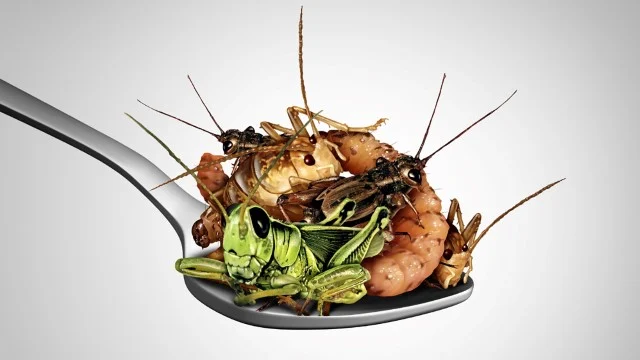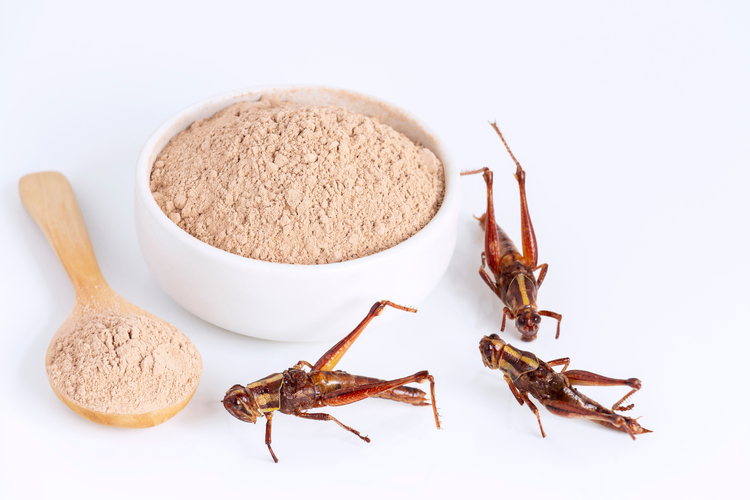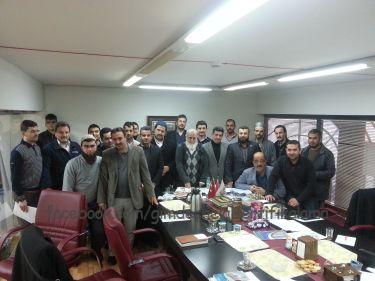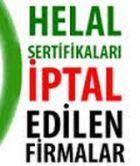Dr.Hüseyin Kâmi BÜYÜKÖZER
Recently, the claim that protein, which is one of the basic needs of people, has not been provided from known sources until now due to the increase in the population, and that this need is provided from insects has created anxiety in Muslim Societies with publications and practices from the West.
Our Fiqh Board’s proceedings regarding the questions centered around the protein of insects are being published.
The aspect of the insect that we will examine in our subject is whether the substances obtained from it are religiously permissible to be added to food products.
The first issue that we will examine first; in general, it is the determination of the principle on which the cleanliness or impurity of the “Insects” type of beings will be determined and the definite ruling on whether they can be eaten or not based on the obtained result.
The aspect of the insect that we will examine in our subject is whether it is religiously permissible to add the protein of the insect obtained by various methods to food products.
The first issue that we will examine first is the determination of the principle on which the cleanliness or impurity of the “Insects” type of beings will be determined in general and the definite ruling on whether they can be eaten or not based on the obtained result.
According to the Hanafi and Shafi’i Schools
In terms of rules, animals are divided into two as those living in the sea and those living on land.
Those living in the sea: Those other than those called fish by the Hanafi school of thought are not edible.
Those living on land are divided into three groups:
1 – Those without blood, which are flies, locusts, spiders, etc.
2 – Those without fluid blood. These are the majority of other insects, snakes and their like.
3 – Those with flowing blood.
There is a consensus in the Hanafi school of thought that animals under the first two categories, except for locusts, are not to be eaten. However, the Shafiis have mentioned that it is permissible to eat lizards as well as locusts.
The reason why it is forbidden to eat insects other than the exceptions, namely locusts and lizards, is that these animals are among the wicked (filthy) ones mentioned in the verse we will mention. Because, Almighty Allah has said:
…وَيُحِلُّ لَهُمُ الطَّيِّبَاتِ وَيُحَرِّمُ عَلَيْهِمُ الْخَبَائِثَ…
“…He commands them to do good and forbids them from evil, permits for them what is lawful and forbids to them what is impure, and relieves them from their burdens and the shackles that bound them….” (Surah Al-A’raf – 157)
However, those who have ruled that eating insects is permissible in other schools of thought have relied on the following verse as evidence:
And He makes lawful for them the good and pure things, and He makes forbidden for them the filthy and bad things…
قُل لَّآ أَجِدُ فِى مَآ أُوحِىَ إِلَىَّ مُحَرَّمًا عَلَىٰ طَاعِمٍۢ يَطْعَمُهُۥٓ إِلَّآ أَن يَكُونَ مَيْتَةً أَوْ دَمًۭا مَّسْفُوحًا أَوْ لَحْمَ خِنزِيرٍۢ فَإِنَّهُۥ رِجْسٌ أَوْ فِسْقًا أُهِلَّ لِغَيْرِ ٱللَّهِ بِهِۦ ۚ فَمَنِ ٱضْطُرَّ غَيْرَ بَاغٍۢ وَلَا عَادٍۢ فَإِنَّ رَبَّكَ غَفُورٌۭ رَّحِيمٌۭ
“I do not find in what has been revealed to me anything forbidden to eat except carrion, running blood, swine—which is impure—or a sinful offering in the name of any other than Allah. But if someone is compelled by necessity—neither driven by desire nor exceeding immediate need—then surely your Lord is All-Forgiving, Most Merciful” (Surah Al-An’am – 145)
Hanafi and Shafi’i scholars have emphasized that this verse was revealed in the early period of Islam and that the verses that made it forbidden later abrogated it.
As a result, eating insects or using them as additives in foods is not considered permissible by the Hanafi and Shafi’i schools. Accordingly, it is not permissible to buy and sell them in the food sector.
According to the Maliki School
There are two views in the school regarding the eating of insects:
1 – It is forbidden whether its death is through purification or not. Although Maliki scholars such as Ibn-i Urafa and Kharafi have adopted this view, the majority of the school has not accepted it.
2 – It is permissible to eat insects that are killed through purification. This is the view accepted in the school.
Although the Maliki scholars express different views on how to purify insects, when the narrations are examined thoroughly, it is understood that the disagreement in the way of performing purification is about virtue. Because no matter how it is purified (no matter how it is killed), if it is done with the Basmala and intention, there is agreement (consensus) that it should be eaten.
As a result, the use of insect protein in foodstuffs can be permissible according to the Maliki school of thought, provided that there is an intention and the basmalah while killing the insect. If one of these is not present, it will not be permissible to eat this insect and use it in foodstuffs according to the Maliki school of thought.
According to the Hanbali School
In the Hanbali school of thought, the determining factor in whether an animal is clean or impure -except for those for whom there is definitive evidence- is whether there is blood in its body.
Living beings are divided into two groups:
a) Living beings that do not have flowing blood
b) Living beings that have flowing blood
Hanbali scholars have ruled on the cleanliness of animals that do not have flowing blood, whether they are alive or dead.
In their explanations for the reason for this ruling, they have stated that the only reason a dead being is impure/dirty is that the blood in its body hardens and becomes trapped, and accordingly, living beings that do not have flowing blood cannot be impure.
As seen as a result of the transplants made, animals that do not have flowing blood are pure, that is, clean.
Shenkiti stated in his commentary on “Zad al-Mustaqni’” that it is haram to eat all insects except worms that originate from food, and he stated that the Muslim community considers such a creature as malignant in terms of the cause.
As can be understood from the above-mentioned narrations, eating insects is haram. Eating and selling the protein of insects is not permissible in the Hanbali school of thought.
It has been stated that since there is no benefit in selling insects, it is haram to sell them.
In conclusion, while the insect we are discussing is not permissible to eat or use as an additive in food products in the Hanafi and Shafi’i schools of thought, it is also not permissible to buy or sell it in the food sector. In the Maliki school of thought, if the insect is killed in accordance with the Islamic method, that is, with intention and Bismillah, it is permissible. Otherwise, it is not permissible. The Hanbali school of thought, on the other hand, has adopted the same view as the Hanafi and Shafi’i schools of thought regarding eating and selling insects, namely that it is not permissible.
In light of the four schools of Islam and the fact that the followers of the four schools of thought show a mixed geography in the distribution of the world’s population, and that institutions and organizations that will produce halal and tayyib products will have to make economic production, it has been deemed appropriate for the safety of the ummah that all insects, including proteins, dyes and others, are treated as haram.
Only Allah (SWT) knows the best of everything.






